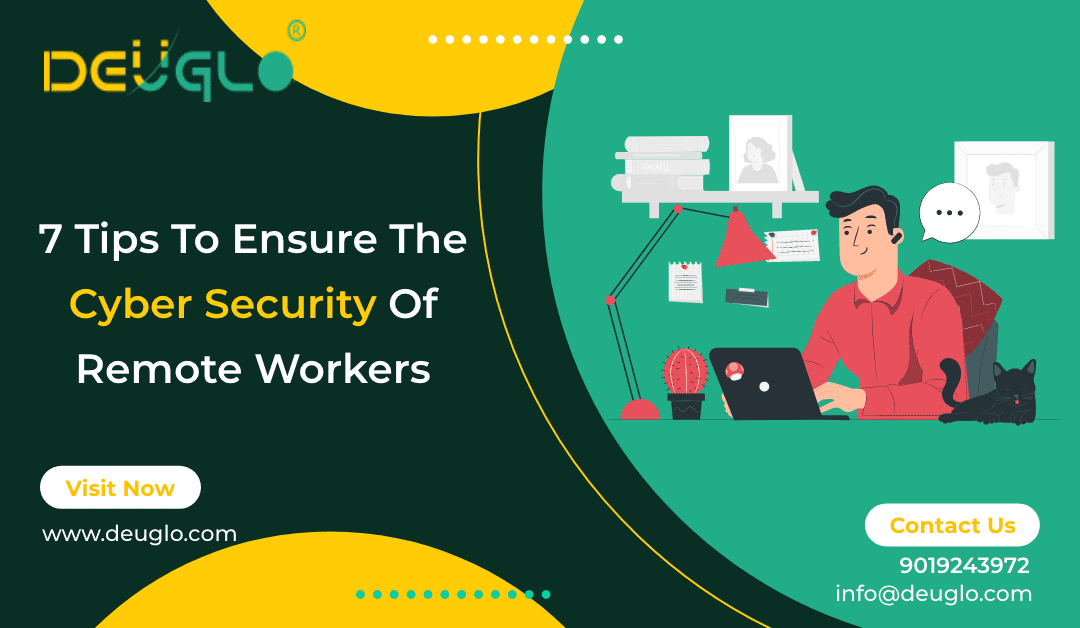Remote work requires strategies to offer support to companies, in addition to protecting data and employees, especially in times of pandemic like this.
In addition to adapting the entire remote work routine due to the COVID-19 pandemic, companies also had to reinforce security strategies and solutions to ensure that employees could continue to be productive and access corporate data and systems in a safe way.
Among the main challenges that companies face in protecting data in this type of work are secure remote access to corporate resources and Bring Your Own Device (BYOD).
In this piece we write 7 tips to help your workers ensure the cyber Security of remote computers.
1. Define a protection policy
It is essential to define which terminal protection will be used for users at home. Domestic staffers will have to use an antivirus tool on devices that have access to company data and resources. It is important to review your current support tools and know what licenses are required to access networks that are not in your domain.
2. Review the software remote officials need
It may be necessary to review licensing options and alternatives based on software that workers use.
You can also review options from antivirus vendors to confirm which ones have cloud consoles capable of managing remote devices.
3. Confirm if any remote access may present more risks
Before allowing any access in, think about the consequences and check if the firewall is configured to only respond to certain static IP addresses and which administrators are authorized to perform the activity.
4. Use a virtual private network
Currently, there are several vulnerabilities in the VPN due to outdated workstations that have older versions of the software, which opens up room for invasions. For this, it is necessary to check if the VPN solutions used are up to date or if the firewall is offering the correct solutions for remote user work areas.
5. Assess potential impacts to firewall, access policies, and other logs
Note that if all of your workforce traffic arrives at one time to multiple IP addresses, the data in the logging platform will not be “normalized.” Those who use firewall geo-blocking with the intent of restricting access from different locations will need to review policies, as remote access will come from different locations. Perhaps the Internet bandwidth also needs adjustments, such as an increase to support remote work and possible video conference calls.
6. Reinforce the knowledge of your officials about possible scams
With the pandemic, the number of scams and phishing has increased dramatically. For this reason, it is important to ensure that your officials are well educated to avoid clicking on links and unsolicited e-mails and to use only official pages. To facilitate such awareness, maintain frequent online advisories to communicate and report anti-scam teachings.
7. Check how the acceptance policies are
It is important to keep computer use acceptance policies up to date to encompass workers’ home computer assets. Request the help of tax consultants and lawyers to verify if the use of computers and telephones by officials requires a reimbursement for use.
With all these tips, it is important you remember not to see the moment as just a stressful affair with many changes. Take the opportunity to see it as an excellent opportunity to update yourself to attend to emergencies and the needs of remote workers.
Teamwork is essential. Before making any decision, all teams must be aware of the company’s business model, understand the role of each worker and know the risks that remote work represents in terms of information security.
With this thinking, your company can create a strategy that enables more productivity, prudent management of cybersecurity risks, and also invests in more modern security technologies and practices.
To protect your business and workers on cyberspace, it will be gladening you consult us, at Deuglo Infosystem Private Limited. We will use our softwares to defend your corporation computers, servers, mobile devices, electronic systems, networks, and data from malicious attacks. Speak with us today for Cyber Security Services.

